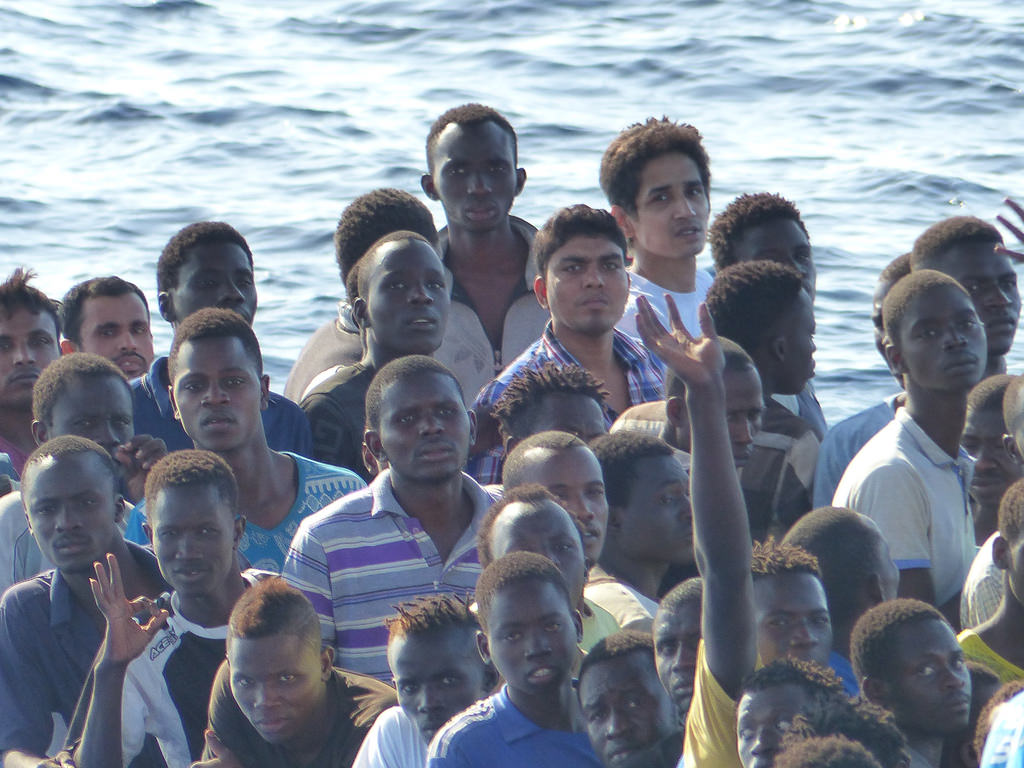“The Libya situation and the rest of us”
December 28Illegal migration has been an issue for eons in Africa, writes Oluwapelumi Francis Salako, 19, a Correspondent from Oyo State in Nigeria, who argues for a united stand to oust the perpetrators and protect human rights.
Young Africans, male and female alike, and even the elders, view the Libyan route as leading to an aisle of wealth on their destination European countries, Italy especially. But this expectation sadly wears a sorrowful garb in the face of reality.
In order to escape the harsh economic situation of their countries, migrants – mostly poor and hopeless folks – embark on this journey to salvage their family from the hands of wanton impoverishment. The countries of origin of these fellows are characterised by corruption that pilfers the common good to the detriment of the populace, forcing them into penury.
Countless persons among the traveling parties from many African countries including Zambia, Cameroon, Nigeria and Ghana, die in the process of this treacherous journey. Many drown at sea, some die of thirst and ferociously consuming hunger, while others lose their lives at the hands of their fellow wayfarers.
Findings about the plans of these migrating fellows further plunges one into an array of disappointment and apprehensiveness. Many flee their home country to escape from poverty – but without any blueprint for subsisting in a foreign land, many miles away from home, in an unfamiliar climate.
CNN broke the news of a thriving slave market in Libya earlier in November. It is totally unthinkable and extremely difficult to accept the emergence and endurance of trade in humans in the 21st century, so many years after the abolition of the slave trade by the British Parliament. It is not only devious and barbaric, but also depressing. This is a renaissance of evil by man against man.
While the news of a slave market has seized the world into momentary lamentation and condemnation against the barbaric act, we must also address the domestic evil of child abuse and related actions. This is perceptible in affluent homes as well as not-so-affluent families who employ school-age children as domestic staff or workers. Such kids hawk and work tirelessly in the homes and workplaces of their masters to the detriment of their education, which in the end poses a jeopardy of their future.
During the course of carrying out their assigned duties, such unlucky kids fall prey to potential for abuse, sexual harassment, molestation and rape. And in some cases they encounter accidents for which, in the end, the abused party will never obtain justice.
Laws must be enforced to tackle this phenomenon all over Africa, as it is practiced in every corner of the continent. The employers of such minors are not only only culpable of this evil. Parents and guardian who expose their wards to the consequences of exploitation must be thoroughly sanctioned.
Africa must unite in an inviolable stance to kick against the ignoble violation of human rights. Humans must never be held or displayed as merchandise in a market.
photo credit: Brainbitch P1050818 via photopin (license)
…………………………………………………………………………………………………………………
About me: I am a student of history and international studies. I derive pleasure in writing on issues bordering on social, cultural and political happenings around the world. I also write short stories and poetry. I am the pioneer of a street photography project, ‘wakaabout’ dedicated to the daily struggle of the common people. I am the author of – speaking Shadows, a poetry and photography chapbook. My aspiration is to become my country’s political head.
…………………………………………………………………………………………………………………
Opinions expressed in this article are those of the author and do not necessarily represent the views of the Commonwealth Youth Programme. Articles are published in a spirit of dialogue, respect and understanding. If you disagree, why not submit a response?
To learn more about becoming a Commonwealth Correspondent please visit: http://www.yourcommonwealth.org/submit-articles/
…………………………………………………………………………………………………………………





